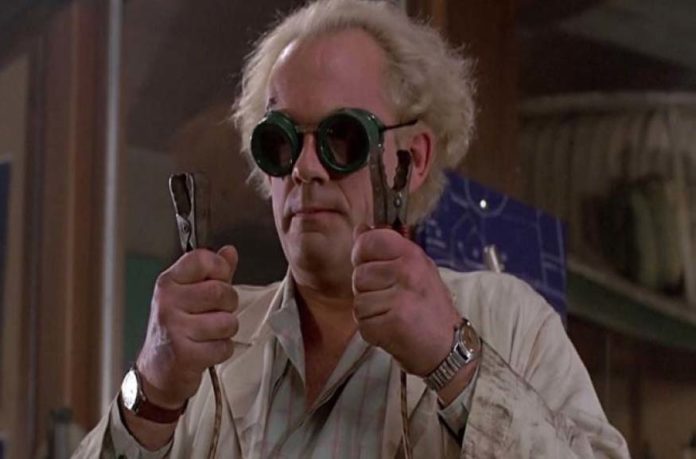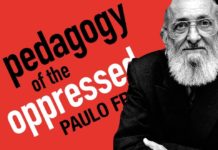Disclaimer: The Eqbal Ahmad Centre for Public Education (EACPE) encourages critical and independent thinking and believes in a free expression of one’s opinion. However, the views expressed in contributed articles are solely those of their respective authors and do not necessarily reflect the position or policy of the EACPE.
Becoming a scientist is not a choice for many people, rather it is a sort of natural talent and tendency of one’s mind that compels one to think in a certain way what we refer to as a scientific method. Some people can improve their thinking by hard work, but when one is working hard it may mean one is not enjoying one’s work, and it could be dreadful for one’s intellectual faculties, and it will not lead to a successful career.
It is said that all practicing scientists are sulphitic in thinking. Sulphite is a universal category of humans, as mentioned by Gellet Burgess in his famous essay Bromides and Sulphites. One’s continuous exercise of adopting logic, reasoning and scientific method can also possibly lead you to a successful scientific career. Richard Feynman, a Nobel Laureate in Physics, was once asked what made him a great physicist who can counter any idea which is pseudo? He responded that he was skeptic to such ideas since his childhood, and he used to counter even his father and teachers. If this attitude is encouraged in a positive manner to think rationally and raise questions, a change can come. But unfortunately our students submit to authority and they have no right or very little right to disagree with teachers. The quality of disagreeing based on reason is called as skepticism which is one of the core values of science. Scientists are skeptic to anybody; they are skeptic even about Newton, Einstein, Feynman, Laplace, Lagrange and so on. They see their theories through scientific mind and test them again and again. When their continuous experiments confirm them each time, they accept them. For anybody can be wrong and a scientist loves to be proven wrong because it’s not an offensive thing, rather it is liberating. As we have to live out our experience as it is, and we have to live it awake, for nature can’t be fooled. We must alter our minds based on new evidence and we should stop ourselves from fooling us. For the easiest person you can fool is yourself. What we learnt through science again and again. As Feynman said, is how to stop ourselves from fooling us.
Scientists don’t do research to win prizes or worldly praises. Even Nobel Laureates reflect that research is always curiosity driven.
Scientists don’t want to live in a world of emotions or blind beliefs, rather they look for new evidences – for science is a self correcting subject. Science itself can prove science wrong, and it does it all the time. Many religious apologists or pseudo scientists misunderstand this behavior of science and consider it to be an unreliable method in many cherry picked cases where they want to prove their super natural claims to be true. Science simply changes domain in which a theory is true. Scientists find limits of their theory. Sometimes, they may restrict the domain of application.. For instance: Ohm’s law does not work for filaments but it really does not mean it will not work for copper. They simply exclude filament from the domain of its application and find reasoning of it too.
Scientists don’t do research to win prizes or worldly praises. Even Nobel Laureates reflect that research is always curiosity driven. You can’t really predict in the beginning where you will go in the end. You go wherever the evidences lead to. Our presumed answers can be wrong and we may get sometime counter intuitive surprising results, but we have to change our common sense also and science changes it. It was quite a common sense to say that earth is flat and it was counter intuitive to say earth is round but now we know it is round and science has changed our common sense about it. Take another anecdote: before even the quantitative measurement of expansion of universe, many scientists including Einstein thought that expansion of universe must be slowing down. It was a simple deduction of universal law of gravitation, which is that gravity is always attractive. Therefore, acceleration must be negative. But to their shock, Edwin Hubble found that expansion was increasing and expansion rate of galaxies was proportional to their distance from us. How interesting it was for the scientific community. Every discovery leads to many new discoveries and this gave rise to idea of dark matter and we found that gravity can be repulsive and most energy of the universe resides in empty space. Here again, scientific thought worked.
Being a scientist, you should not work emotionally, and your best trust should be on test or experiment. In science, first you guess, then make a theory and after that you test it. And here comes Feynman’s mantra, “It does not matter how beautiful your theory is, how genius you are who made the theory, if it disagrees with experiment – it’s wrong.” Hence, authority resides to experiment.
Don’t be afraid of not knowing and be doubtful to every idea. It is biggest quality of scientists. Feynman once said “I would have questions that can’t be answered, rather than answers that can’t be questioned. For a scientist what really matters is the reality which can be quite opposite to our primitive perceptions. And reality is what is true even if people don’t believe in it. So, be an admirer of nature and its beauty, and celebrate science, rather than dogma. Never be a spectator of stupidity. Science is hard, it is difficult to grasp for ordinary minds but it is enthralling, it is fascinating. Science is pleasure of going from confusion to clarity. This desire for pleasure makes a scientist, a scientist. That’s how scientists think.
About the Author:
The writer is doing F.Sc (Pre-Engineering). He has a deep enthusiasm for physics and mathematics. He is also a member of Science Talent Farming Scheme (STFS) of Pakistan science foundation (PSF).







